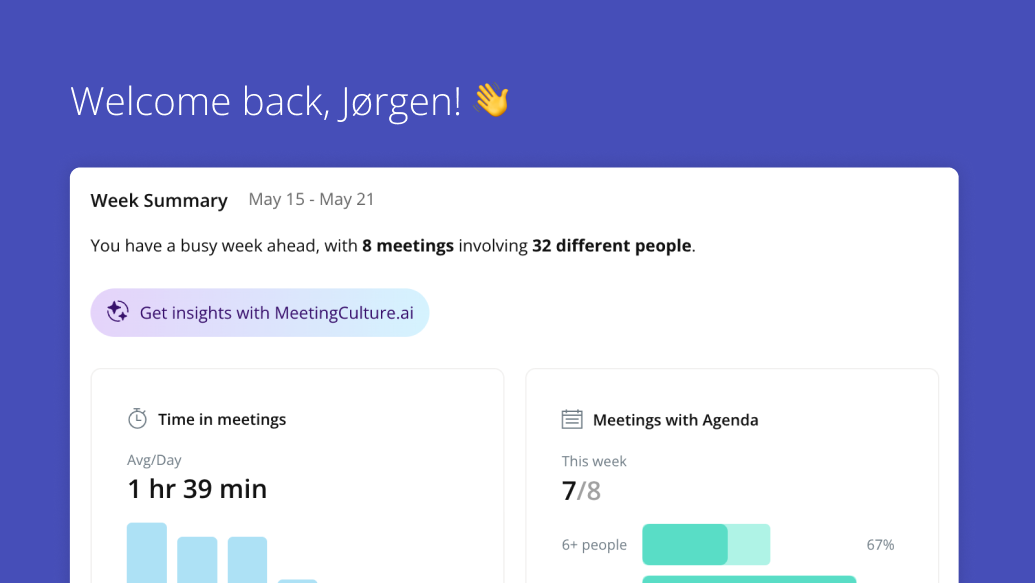How to Politely Decline a Meeting Invitation
Learn to decline meeting invites politely without offending anyone. Enhance productivity with the Decisions app. Take control of your schedule.
In today's professional landscape, attending numerous meetings has become the norm. However, accepting every invitation can lead to overwhelming schedules and diminished productivity. Politely declining a meeting invitation can be a delicate task, as you want to avoid offending the organizer while also respecting your time and priorities. Let's explore effective strategies to gracefully decline a meeting invitation without offending, empowering you to regain control of your schedule and focus on what matters most.
- Assess Your Priorities
- Check Your Availability
- Respond Promptly and Graciously
- Offer an Alternative Solution
- Be Honest, But Tactful
- Use Technology to Streamline Communication
- Prioritize Meetings that Add Value
- Politely Decline, Don't Ignore
- Offer to Share Information
- Communicate with Empathy
- Learn to Say No
- How Decisions Meeting Management App Can Help
Assess Your Priorities
Before responding to a meeting invitation, take a moment to evaluate your current priorities and commitments. Determine whether the meeting aligns with your objectives, projects, and overall workload. If the meeting does not contribute to your core responsibilities or strategic goals, it may be appropriate to consider declining.
Check Your Availability
Review your calendar to ensure that you do not have any conflicting appointments or overlapping commitments. If you have already committed to another meeting or task during the proposed meeting time, use this as a valid reason to politely decline the invitation.
Respond Promptly and Graciously
Time is valuable for both you and the meeting organizer. Be sure to respond to the invitation promptly, expressing your gratitude for the invitation while explaining your decision to decline. A simple and gracious response can go a long way in maintaining positive professional relationships.
Offer an Alternative Solution
If the meeting is relevant, but the timing is not suitable, propose an alternative solution. Suggest rescheduling the meeting for a time that works better for you or offer to provide input or updates via email or a brief one-on-one discussion.
Be Honest, But Tactful
When declining a meeting invitation, honesty is essential. If the meeting does not align with your current priorities or if you lack the necessary expertise to contribute meaningfully, communicate this tactfully. Avoid vague excuses and, instead, focus on being transparent and respectful.
Use Technology to Streamline Communication
Leverage technology to make the decline process more efficient and professional. Email templates or scheduling tools allow you to respond promptly without sacrificing politeness. Meeting management apps like Decisions can help you manage your meeting schedule, providing insights into which meetings are most relevant to your role and projects.
Prioritize Meetings that Add Value
As you navigate through your busy schedule, prioritize meetings that add value to your work and contribute to your professional growth. Focus on attending sessions where your expertise and insights are genuinely required, enabling you to significantly impact the outcome.
Politely Decline, Don't Ignore
Avoid simply ignoring a meeting invitation, as it can be perceived as unprofessional and disrespectful. Take the time to acknowledge the invitation and provide a courteous response, even if it involves declining.
Offer to Share Information
If you have information or data that may be helpful for the meeting's purpose, offer to share it with the organizer or relevant participants. By doing so, you demonstrate your willingness to contribute despite not attending the meeting.
A meeting management app, like Decisions, can help you share information and collaborate on agendas live. If you cannot make the meeting, you can attach relevant documents to agenda items, whether you can attend or not.
Communicate with Empathy
Remember that meeting organizers also face challenges in managing schedules and coordinating attendees. Be empathetic in your response, acknowledging the effort put into organizing the meeting while politely declining.
Learn to Say No
Learning to say no respectfully is essential to manage your time and priorities effectively. While declining a meeting invitation might feel uncomfortable initially, it allows you to focus on high-priority tasks and maintain a healthy work-life balance.
How Decisions Meeting Management App Can Help
Meeting management apps like Decisions can be instrumental in helping you make informed decisions about which meetings to attend. By providing insights into meeting agendas, attendees, and objectives, Decisions empowers you to identify sessions that align with your responsibilities and areas of expertise. Additionally, meeting organizers can assign only relevant presenters to agenda items to ensure that you prioritize attending meetings that truly matter and contribute meaningfully, leading to more productive and purposeful interactions.
To Sum it Up
Politely declining a meeting invitation is a valuable skill that allows you to take control of your schedule, prioritize tasks, and maintain a healthy work-life balance. By assessing your priorities, being honest yet tactful in your response, and utilizing technology like Decisions, you can confidently decline invitations while fostering positive and professional relationships with your colleagues. Remember, effective time management is essential for maximizing productivity and achieving success in your professional endeavors.

